A healthy breakfast lays the foundation for a child’s physical energy, mental focus, and emotional balance throughout the day. However, in today’s fast-paced lifestyle, it can be difficult for parents to come up with nutritious, easy, and appealing breakfast options every single day — especially when kids are picky eaters.
This comprehensive guide provides everything you need to know about healthy breakfasts for kids, including key nutrients, time-saving tips, and a curated list of nutritious and delicious recipes that even the fussiest kids will love.
Why Breakfast Is Crucial for Kids
Breakfast is often called the most important meal of the day, and for growing children, it is essential. Here’s why:
- Improves focus and concentration: A nutritious breakfast helps improve attention span and memory.
- Boosts metabolism: After a long night’s rest, breakfast jumpstarts the metabolism and keeps kids active.
- Supports healthy growth: Kids need energy and nutrients to grow, and breakfast is the first chance to provide those.
- Prevents overeating later: Skipping breakfast can lead to excessive hunger later in the day, increasing the chances of unhealthy snacking.
Key Nutrients Kids Need in Breakfast
A balanced breakfast for children should consist of the following components:
- Proteins: Essential for muscle development and immune health.
- Sources: Eggs, milk, yogurt, cheese, lentils, peanut butter
- Complex Carbohydrates: Provide long-lasting energy.
- Sources: Whole wheat bread, oats, brown rice, millets
- Healthy Fats: Important for brain development.
- Sources: Nuts, seeds, avocado, ghee, olive oil
- Fiber: Aids digestion and keeps kids fuller longer.
- Sources: Fruits, vegetables, whole grains
- Vitamins and Minerals: Crucial for immunity and growth.
- Sources: Seasonal fruits, vegetables, dairy products
10 Healthy Breakfast Recipes for Kids
Here are ten tried-and-tested breakfast recipes that are not only nutritious but also child-friendly and easy to prepare.
1. Banana Oat Pancakes
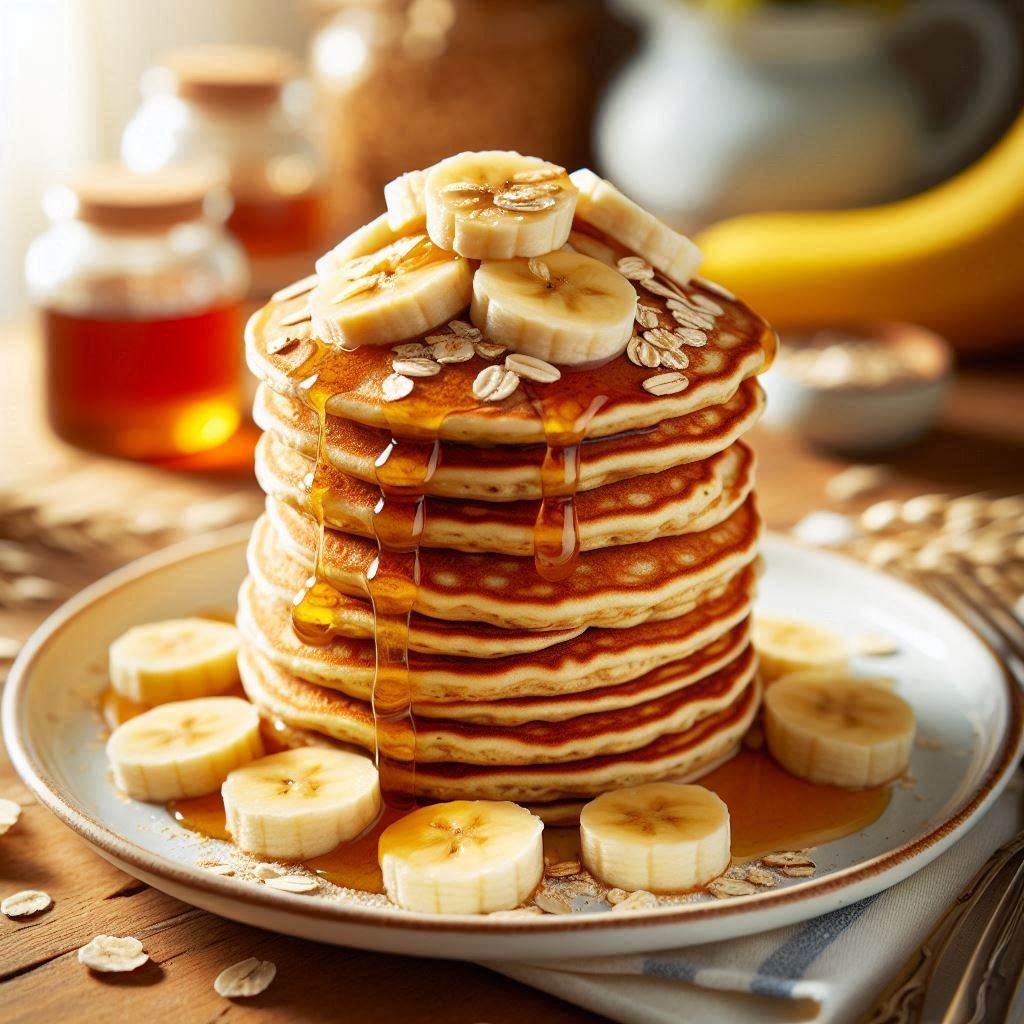
Ingredients:
- 1 ripe banana
- 1 egg
- 1/2 cup rolled oats
- Cinnamon (optional)
Method: Blend all ingredients to make a smooth batter. Pour onto a non-stick pan and cook both sides until golden brown.
Nutritional Benefit: High in fiber and protein; naturally sweetened.
2. Vegetable Stuffed Paratha
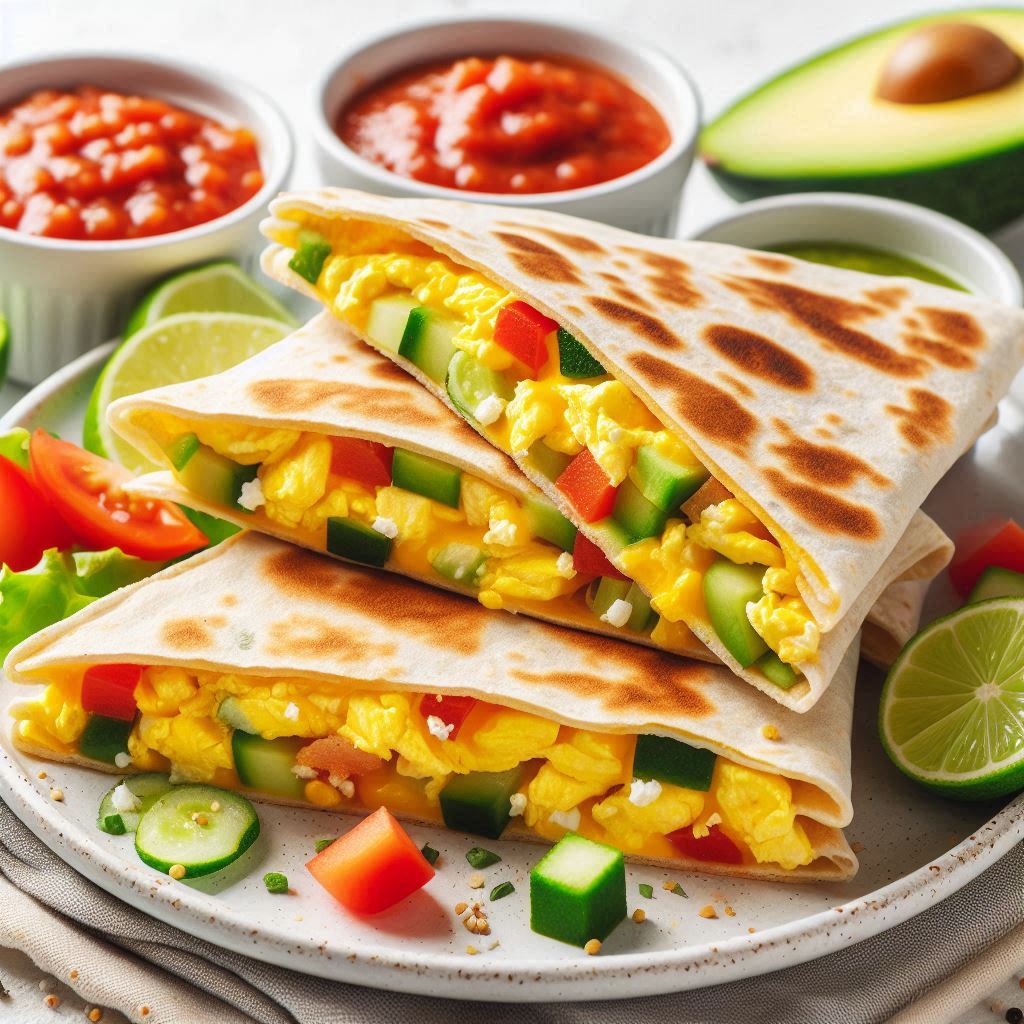
Ingredients:
- Whole wheat flour
- Grated carrots, mashed potatoes, chopped spinach
- Spices: cumin, salt, turmeric
Method: Mix vegetables with flour to make dough. Roll into small circles and roast on a hot pan using minimal ghee. Serve with plain yogurt.
Nutritional Benefit: Combines carbs, fiber, and vitamins in one meal.
3. Egg and Cheese Quesadilla
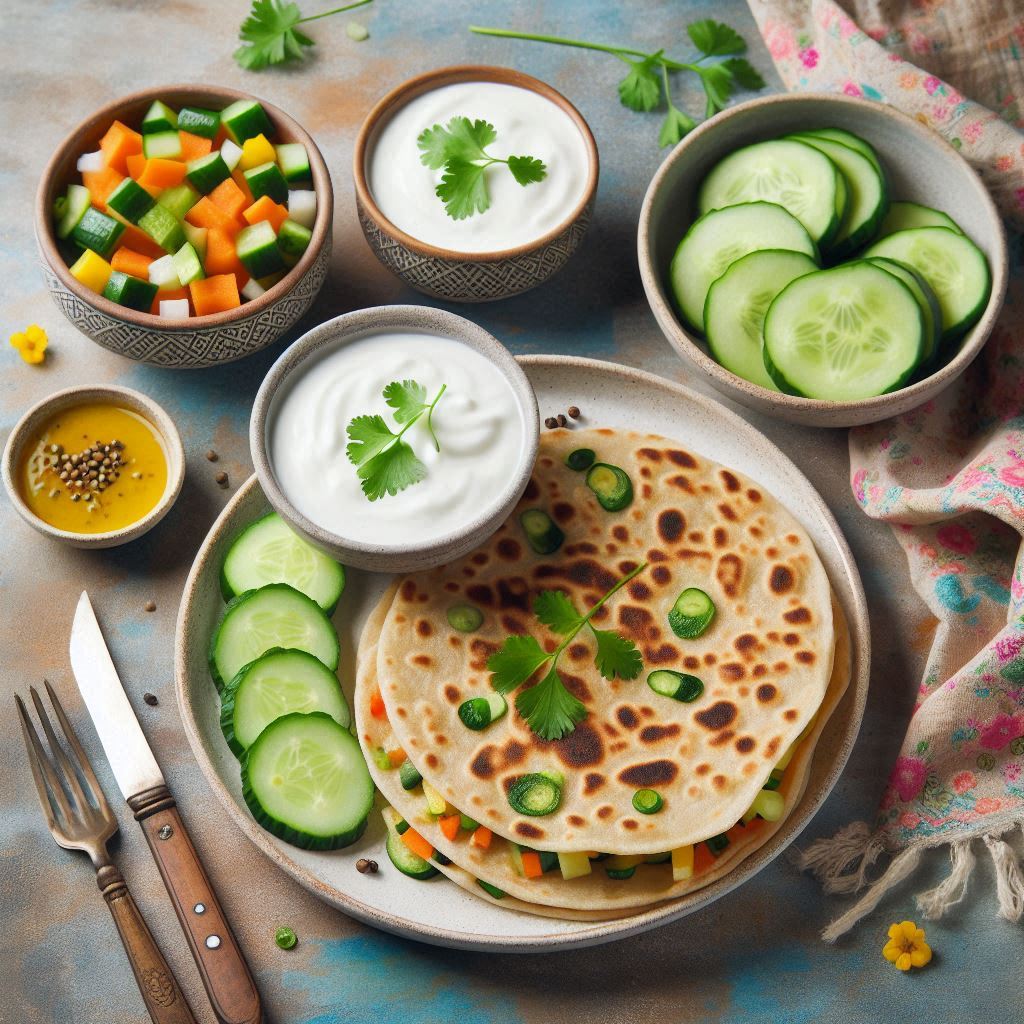
Ingredients:
- Whole wheat tortilla
- Scrambled eggs
- Grated cheese
- Chopped vegetables
Method: Place scrambled eggs and vegetables on half of the tortilla, top with cheese, fold, and cook on both sides until crispy.
Nutritional Benefit: Rich in protein and calcium.
4. Yogurt Fruit Parfait
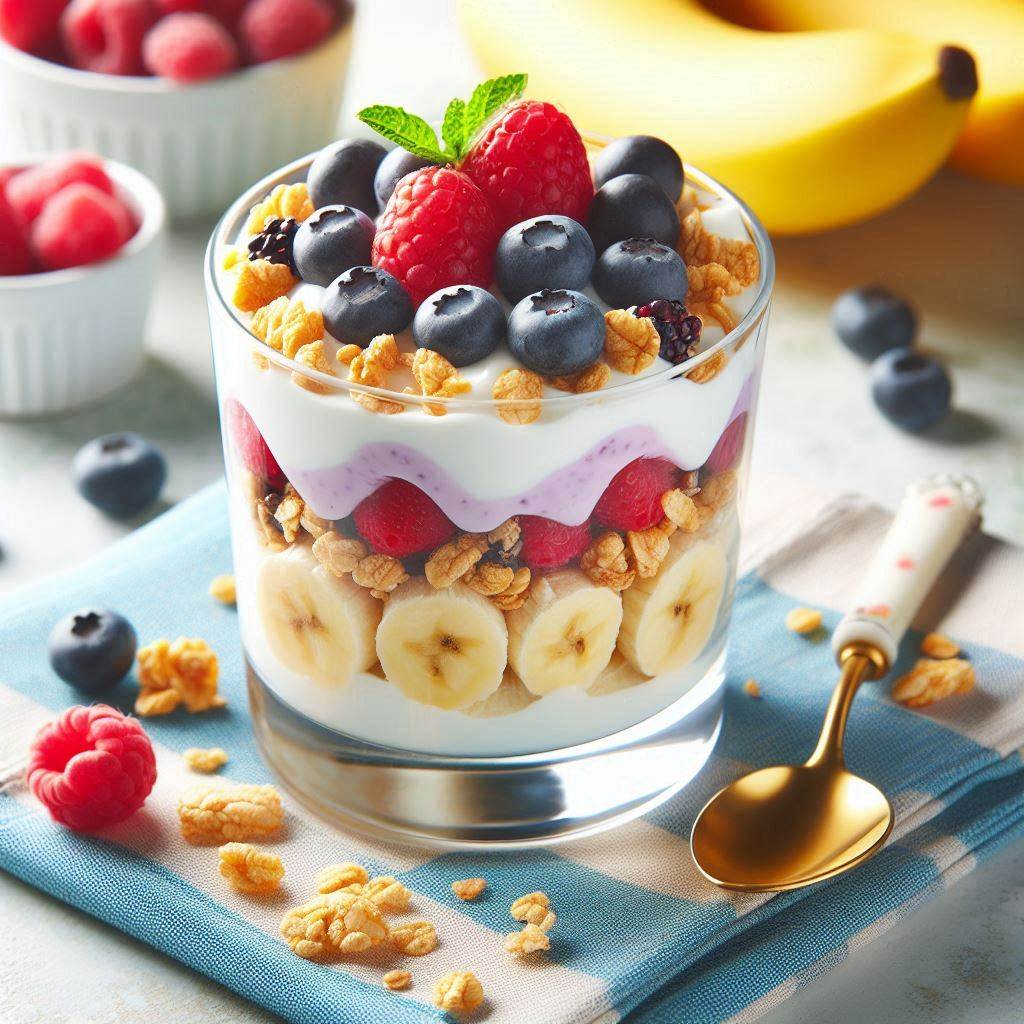
Ingredients:
- Greek yogurt
- Seasonal fruits (banana, berries, apple)
- Homemade granola or soaked oats
Method: Layer yogurt, fruits, and granola in a glass or bowl.
Nutritional Benefit: Great source of probiotics, calcium, and antioxidants.
5. Moong Dal Cheela

Ingredients:
- Soaked yellow moong dal
- Grated carrots, chopped coriander
- Salt, cumin
Method: Grind dal into a batter, add vegetables and spices, and cook like pancakes on a non-stick pan.
Nutritional Benefit: High-protein, gluten-free, and easy to digest.
6. Nut Butter Banana Toast
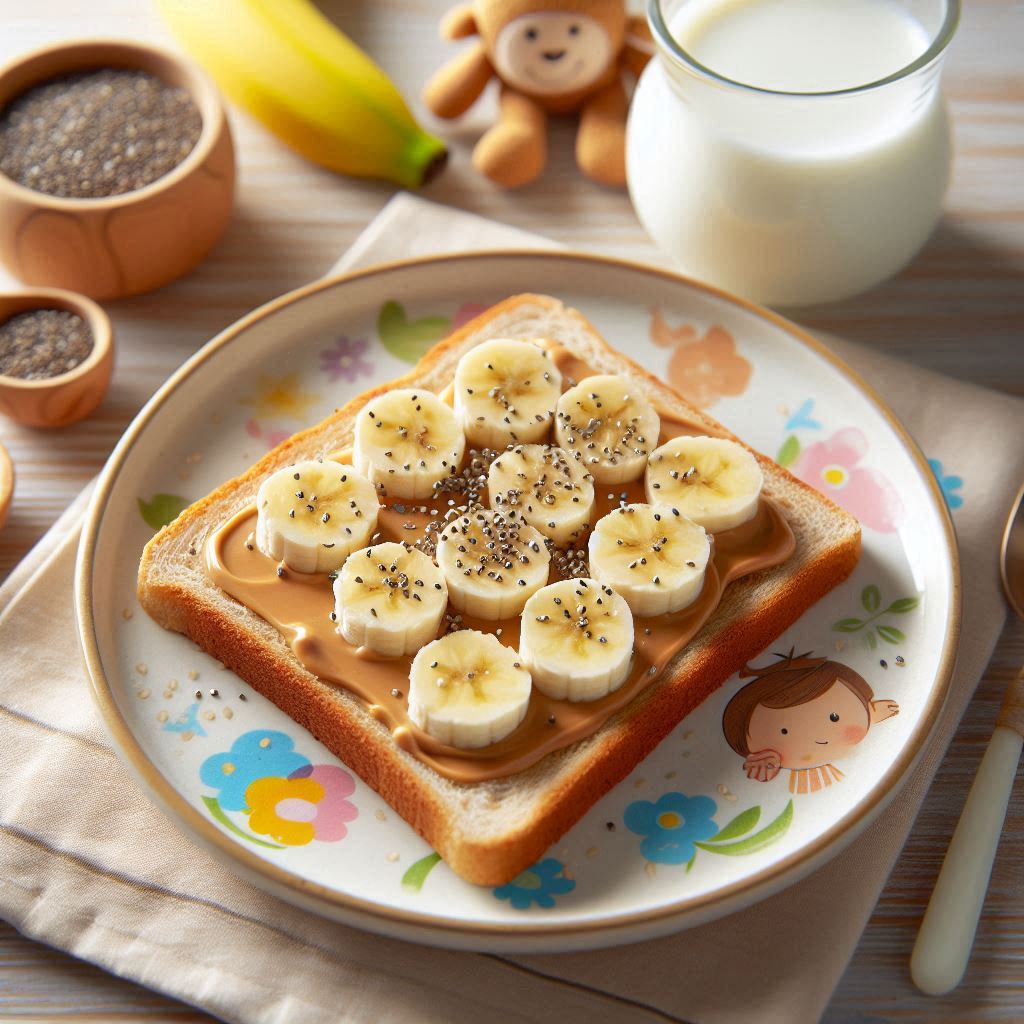
Ingredients:
- Whole wheat bread
- Peanut butter or almond butter
- Sliced banana
- Chia seeds (optional)
Method: Toast the bread, spread nut butter, top with banana slices, and sprinkle chia seeds.
Nutritional Benefit: Quick energy and heart-healthy fats.
7. Oats Upma
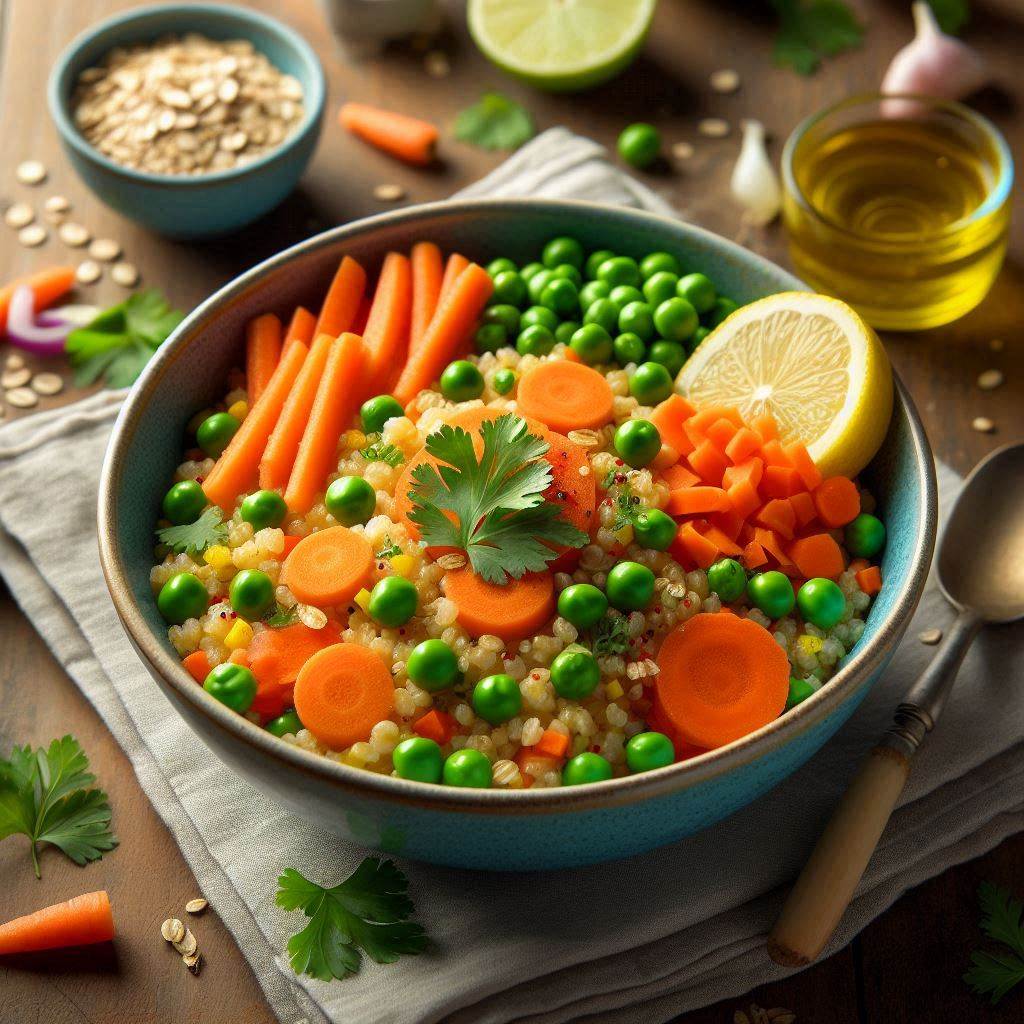
Ingredients:
- Rolled oats
- Mustard seeds, curry leaves
- Chopped vegetables (carrot, peas, onion)
Method: Dry roast oats, then cook with sautéed vegetables and water until soft.
Nutritional Benefit: High-fiber, low-fat, and filling.
8. Smoothie with Hidden Vegetables
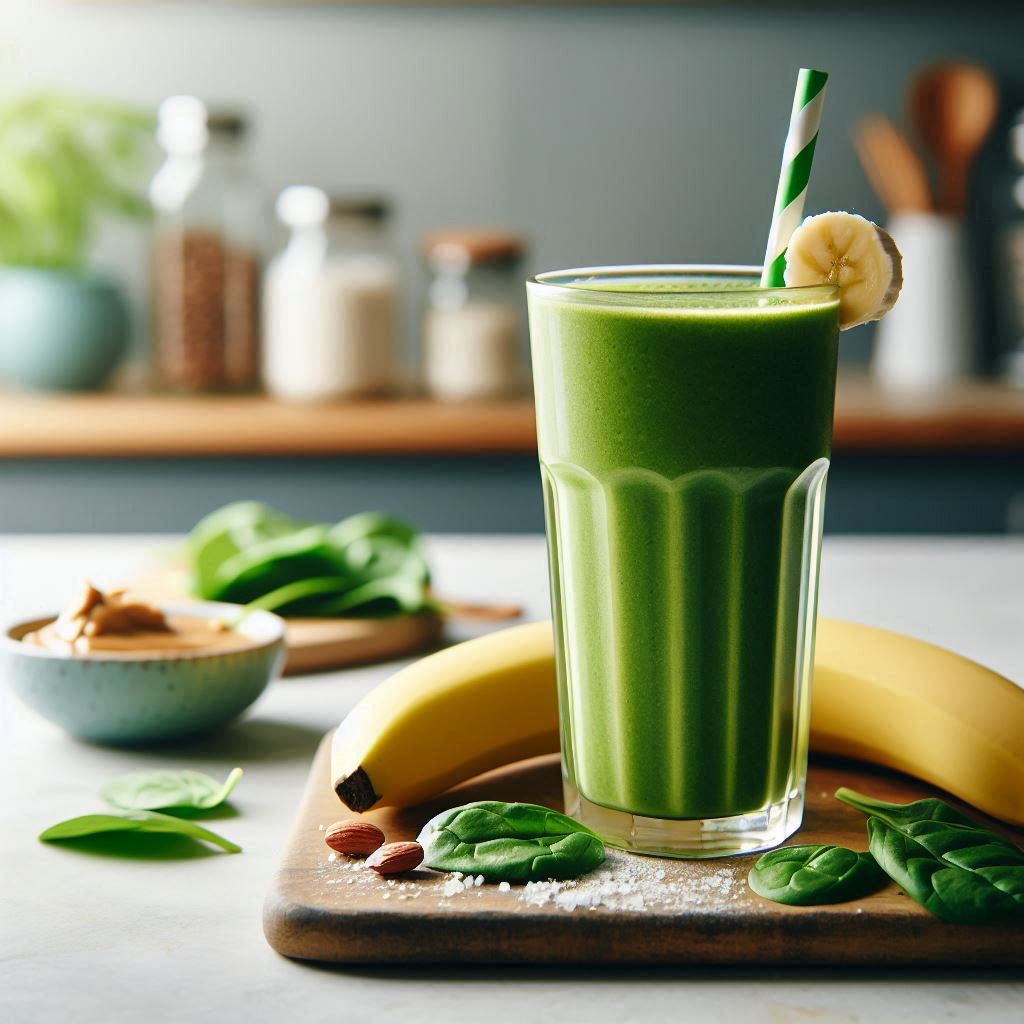
Ingredients:
- 1 banana
- 1/2 cup spinach
- 1 tablespoon peanut butter
- 1 cup milk or dairy-free alternative
Method: Blend all ingredients until smooth.
Nutritional Benefit: A fun way to sneak in greens and boost immunity.
9. Mini Egg Muffins

Ingredients:
- Eggs
- Chopped vegetables
- Cheese (optional)
Method: Mix all ingredients and pour into greased muffin trays. Bake at 180°C for 15–20 minutes.
Nutritional Benefit: Portable, protein-packed breakfast perfect for school days.
10. Millet Idlis
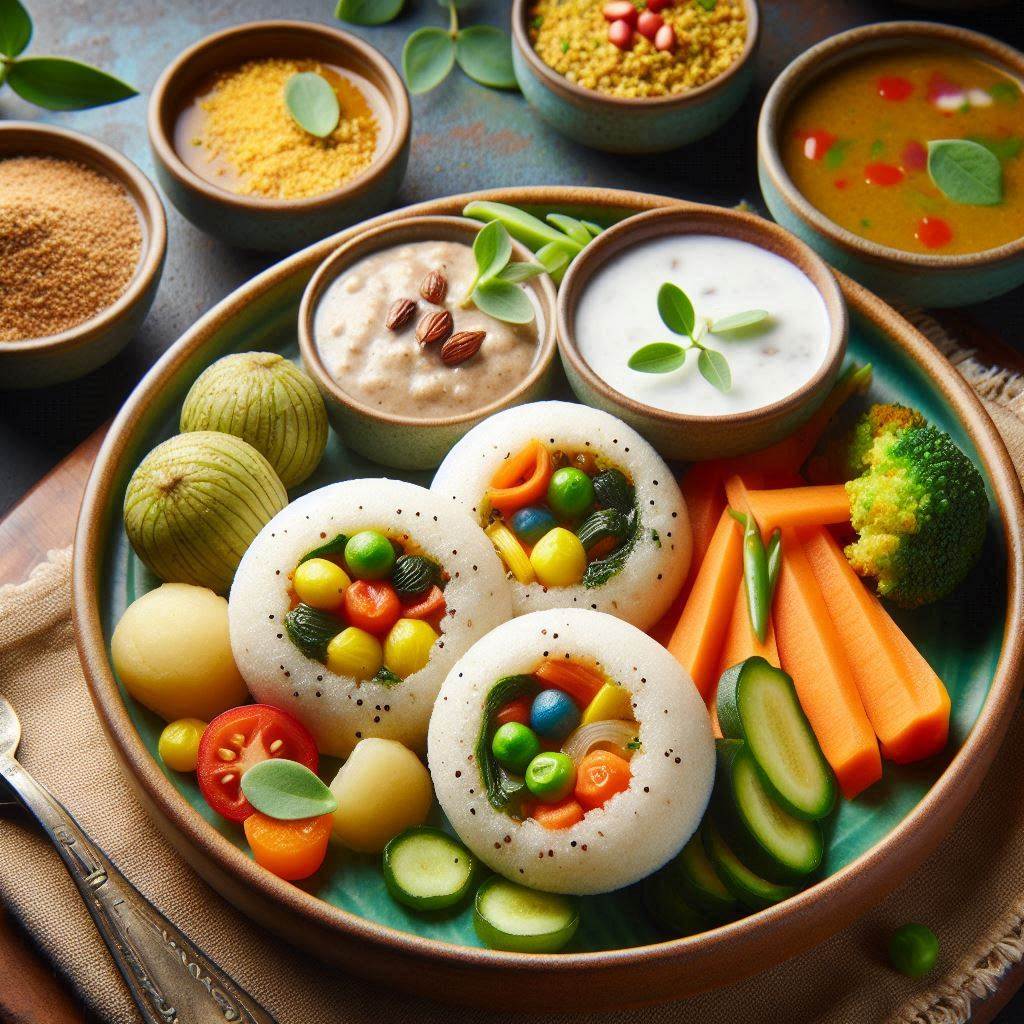
Ingredients:
- Millet flour or ragi flour
- Curd
- Grated vegetables
Method: Mix ingredients to form a thick batter, pour into idli molds, and steam for 10 minutes.
Nutritional Benefit: High in calcium and iron, gluten-free.
Practical Tips for Busy Mornings
- Meal prep on weekends: Chop vegetables and make batters in advance.
- Use freezer-friendly recipes: Pancakes, muffins, and cheelas freeze well.
- Rotate meals weekly: Avoid repetition to maintain interest.
- Serve familiar items with new ones: This helps develop taste over time.
- Keep breakfast visually appealing: Use colorful ingredients to make the food look exciting.
Conclusion
Creating a healthy breakfast routine for kids is one of the best investments in their future. By focusing on variety, balance, and taste, you can ensure that your child starts each day with energy, focus, and a smile. The recipes shared here are flexible, nutritious, and suitable for both weekdays and weekends.
Whether you’re a working parent, a homemaker, or a caregiver — these breakfast ideas will help you plan smarter, cook healthier, and make mornings more joyful.
